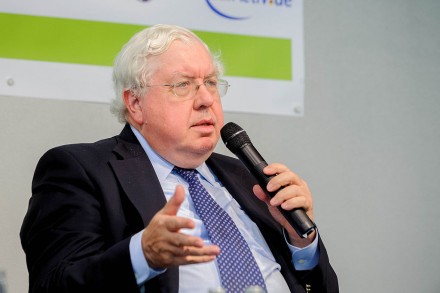
John Kornblum, American diplomat, businessman and former US ambassador to the Federal Republic of Germany (New Eastern Europe)
New Eastern Europe
A Bimonthly Dedicated to Central and Eastern Europe
An interview with John Kornblum, American diplomat, businessman and former US ambassador to the Federal Republic of Germany. Interviewer: Matthew Luxmoore. Interview was previously published at Neweasterneurope.eu on July 21.
MATTHEW LUXMOORE: You have argued that Europe needs to find another narrative, a narrative that makes the Vladimir Putin challenge clear. What do you mean by this?
JOHN KORNBLUM: All big events are defined on the basis of a story, the narrative which tells what it is all about. In Ukraine, we have lost that narrative. Russia has quite skilfully established the legend that the West was too aggressive after the end of the Cold War. That we should have understood Russian sensitivities, and that we should have given them time to digest things. And that Putin’s aggression is a justifiable reaction to Western tactics. The Russians have succeeded with their narrative because many in the West misunderstood from the beginning what the real challenge with Russia would be. This group argued that we should have abandoned NATO and set up a new “mutual security” system with Russia. They believed that we threatened Russia by placing NATO almost directly on its borders.
The truth is that the West essentially disarmed after 1992. We did make Russians like Putin uneasy, not because we were threatening them militarily but because we did what we said we were going to do. We extended open and free societies and markets all the way up to the Russian border. That was the threat, the threat of democracy.
Russia has traditionally viewed security as a zero sum game. That is why since the 1950s, and perhaps even before, they argued that Europe should be coordinated on the basis of mutual security agreements – not shared security, like NATO, but mutual security. But you know what mutual security is? It means spheres of influence: “I define my security the way I want to and you define yours and then you leave me alone.” The Eurasian Union is a classic example of this sort of system.
Putin defines Russia in imperialist terms. This means that Ukraine, Georgia, Armenia and Kazakhstan will be consigned to Russian control; like reconstituting large parts of the Soviet Union. They have more or less given up on the Baltic states for the time being. But the area of contention right now is the area that runs down to the Black Sea, including Ukraine, Moldova, Georgia and Armenia. They want these nations to be part of their sphere of influence, period.
So how do we win the narrative, in your view, and ensure that the European Union stays unified? What strategy do you propose?
We need to abandon efforts at mutual security such as the OSCE “Eminent Persons“ exercise and instead actively sell our view of civil society and democratic values. The reasoning is simple: it works. Western countries, especially those in the core European-American alliance, have over the past 500 years developed the most pragmatic, most just and most successful system of values ever invented. We have dealt with some of the most difficult challenges of human society – the relationship of the individual to the state, the concepts of justice, fairness and tolerance – and we have built these into our society more than any other system has. George Bush approached it as a crusade. Barack Obama treats it almost like a religion. I think neither the Bush nor the Obama approach is the right one. The right one is simply to say: “This works”. And this is essentially what we said to Europe in the 1990s. If you, Poland, if you, Hungary, if you, Romania want to become a member of the European Union – you just take these things that work and you apply them.
So you think there is a clear formula for success, a kind of Wilsonian set of principles that’s universalisable and works for every country?
Pragmatism is the word. It can be helpful to most countries, but that does not mean that every country has to have a Westminster style democracy. It means that countries need to understand why a lot of these principles work and try to apply them.
You say the system works, but it is not resonating at the moment with countries like Russia. If we aim to spread what some call a Washington consensus, do you think these are problems we can overcome?
The radical new element is that the system is not being spread by any government. It is being spread by technology. That is the interesting thing. A similar process overwhelmed the old order in the 19th century. The industrial revolution brought the steam engine and the telegraph. Go to any major corporation or government ministry and you will find it is so linked into global data networks and exchanges that it is hardly independent any more. Take Volkswagen. It has a global network that will blow your mind, run within the Volkswagen system but operated by individuals all over the world.
This phenomenon is a new form of meritocracy. Not because of any democratic principles but because it destroys the monopolies. Think for a second about the social monopolies which have been weakened over the past 20 years – libraries, newspapers, doctors or radio broadcasting. You do not need them anymore. Up until 15 years ago, our modern Western industrial society was run on the basis of benign monopolies; not people trying to control us. Rather, the simple fact that if you wanted books you needed a library. If you wanted a good education you needed a university – you do not need a university any more.
So countries like Russia are trying to fight a system whose triumph is inevitable? It seems there are competing ideas that have mass support in such societies, with Putin’s Russia as one example.
Let us go back for a second to the difference between narratives. Our narrative should be a positive, self-confident one, saying that our goal after 1990 was to extend democracy, free markets and open societies as far as we could. And we did this based on a combined, three-pronged strategy: NATO enlargement to give countries security, EU enlargement to give them a social, political and economic community, and strengthening the OSCE so that we would have an all-European forum in which all nations, including Russia, could put forward their concepts of security.
In addition, we offered the Russians the NATO-Russia Founding Act, a whole series of arrangements including a NATO-Russia council. We did something similar with Ukraine, though less extensively. We think we did everything we should have done, but what we neglected in the process was to make clear that our goal was not a classic security system inherited from the cold war, but a social and value system. And that this social and value system has succeeded beyond our hopes. It now reaches the Russian border.
So by the time of the most recent EU enlargement in 2007 we had done what we said we were going to do. We established a democratic system which goes from Finland and Estonia on the Russian border all the way round to Alaska on the Pacific. We have a globe-spanning community of people, almost a billion strong (I added it up one time), and we should be extremely proud of that. There is no reason to be defensive about it and say we somehow pushed the Russians into something.
Though there are crises, and what we are seeing currently in the European Union has caused concern. How would you explain the recourse to more nationalist parties that we are witnessing?
There is societal-technological change going on and the EU is not flexible enough to deal with it. So people are angry. The danger is not that we will have the Third Reich back. That is the other narrative. We will not have a collapse of the EU, but we could have some great instability and some great complications. And one of Europe’s weaknesses is that it is a “good-weather prosperity” kind of place – as long as the weather is good and there is prosperity, it looks wonderful. When you bump into challenges it looks less good. So that is where we are now.
Of course there will be crises. All societies have crises. The United States has been faced with both economic and political crises over the past ten years. And a democratic society has more debates and more crises than a controlled authoritarian one. But somehow, we always come out ahead.
Looking back to the start of the Ukrainian crisis, a lot of people criticise the EU for not having given enough concrete incentives to Kyiv. What is your view on that?
I think that is true and they should absolutely act differently now with Georgia. Georgia has been doing exactly what it is expected to do for the past four or five years, now it wants to signal its intent to be on a NATO membership track. And NATO is letting them down.
I know that Georgia, Moldova and Ukraine want to be part of NATO and the EU. So we have three countries, including one major country, that want to become members of western institutions. And the western institutions are afraid even to let them in the front door. So we definitely need a different strategy and need to stop worrying about making the Russians mad.
So how should we act towards Russia?
I have dealt with the Soviet Union and Russians for many years. In my experience, you are more successful when you are firm in your convictions and clear about your goals. They take reasonableness as capitulation. That sounds like a stereotype, I know, but it does work. At the same time we are in a very confrontational situation right now, and finding the right strategy will be difficult.
Russia feels threatened by the fact that we have built this community all the way up to its borders. What we should say is “yes, of course we threaten them, we know we do”. Our system does indeed threaten them. Right now we just have to do what we are doing and understand that we are not going to control Russia and it is not going to return to some kind of partnership arrangement. We simply have to have a kind of Cold War containment towards them.
Though it is more of a hot war at the moment…
It is a hot war. They are actually shooting each other. There needs to be good diplomacy to change that. I am not sure I have seen good diplomacy yet, but you have to keep up the pressure. That is an important short-term issue, but there are also longer-term issues. First and foremost, we need a policy for the so-called Near Abroad, which we do not have. The EU does not know if it is willing to offer Georgia, Ukraine and Moldova membership. I think they should put the perspective on the table. But that does not mean they will be members tomorrow. That means you start a process that may extend far into the future.
You have lived in Germany for over 50 years and you have often praised Germany’s role in Europe. What do you think that role entails, especially at the moment?
I think Germany is evolving towards a stable leadership role. Not leadership in the way the United States leads, or even how the British or French used to, with big initiatives. Germany’s leadership has always been through osmosis. In the past weeks Germany has taken over the main role as western interlocutor with the Russians. Nobody would have ever thought that would happen. German Chancellor Angela Merkel is the one who is carrying the dialogue. Even Obama cannot talk to Putin.
Of course there are reasons to be critical of the Germans. They should be spending more on defence, they should show more solidarity to the Baltic states – but overall their behaviour over the past 50 years has made them the most respected country in Europe. And they are handling it pretty well.
John Kornblum is an American diplomat, former US ambassador to the Federal Republic of Germany.
Matthew Luxmoore is a freelance journalist who has written for The New Republic, Evening Standard and the Kyiv Post.

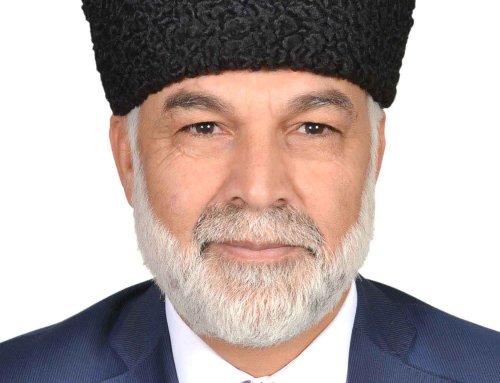
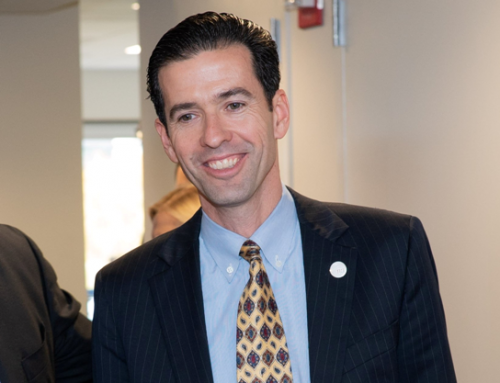
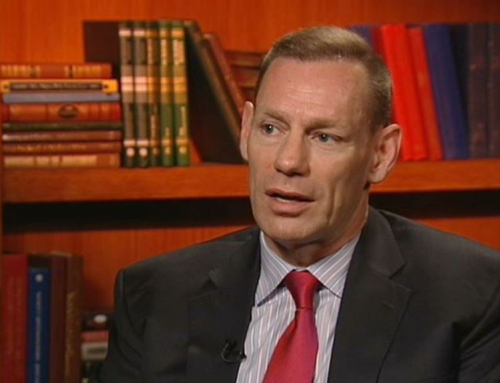
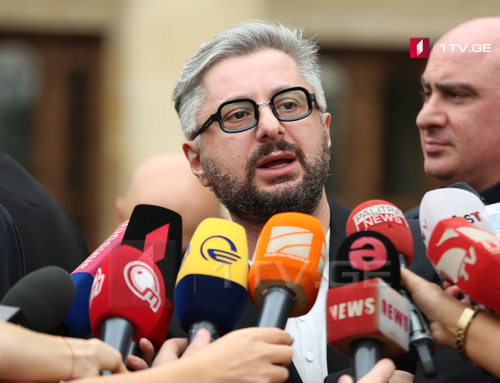
Leave A Comment
You must be logged in to post a comment.